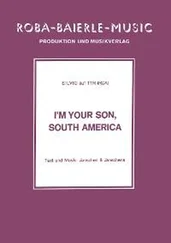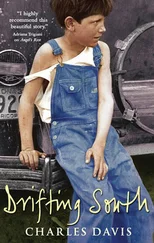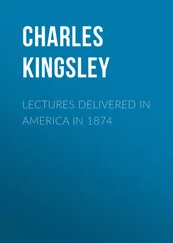Charles Waterton - Wanderings in South America
Здесь есть возможность читать онлайн «Charles Waterton - Wanderings in South America» — ознакомительный отрывок электронной книги совершенно бесплатно, а после прочтения отрывка купить полную версию. В некоторых случаях можно слушать аудио, скачать через торрент в формате fb2 и присутствует краткое содержание. Жанр: Путешествия и география, История, foreign_edu, foreign_antique, foreign_prose, на английском языке. Описание произведения, (предисловие) а так же отзывы посетителей доступны на портале библиотеки ЛибКат.
- Название:Wanderings in South America
- Автор:
- Жанр:
- Год:неизвестен
- ISBN:нет данных
- Рейтинг книги:5 / 5. Голосов: 1
-
Избранное:Добавить в избранное
- Отзывы:
-
Ваша оценка:
- 100
- 1
- 2
- 3
- 4
- 5
Wanderings in South America: краткое содержание, описание и аннотация
Предлагаем к чтению аннотацию, описание, краткое содержание или предисловие (зависит от того, что написал сам автор книги «Wanderings in South America»). Если вы не нашли необходимую информацию о книге — напишите в комментариях, мы постараемся отыскать её.
Wanderings in South America — читать онлайн ознакомительный отрывок
Ниже представлен текст книги, разбитый по страницам. Система сохранения места последней прочитанной страницы, позволяет с удобством читать онлайн бесплатно книгу «Wanderings in South America», без необходимости каждый раз заново искать на чём Вы остановились. Поставьте закладку, и сможете в любой момент перейти на страницу, на которой закончили чтение.
Интервал:
Закладка:
“But now let me enter into the minutiæ of Tudhoe School. Mr. Storey had two wigs, one of which was of a flaxen colour, without powder, and had only one lower row of curls. The other had two rows, and was exceedingly well powdered. When he appeared in the schoolroom with this last wig on, I know that I was safe from the birch, as he invariably went to Durham and spent the day there. But when I saw that he had his flaxen wig on, my countenance fell. He was in the schoolroom all day, and I was too often placed in a very uncomfortable position at nightfall. But sometimes I had to come in contact with the birch-rod for various frolics independent of school erudition. I once smarted severely for an act of kindness. We had a boy named Bryan Salvin, from Croxdale Hall. He was a dull, sluggish, and unwieldy lad, quite incapable of climbing exertions. Being dissatisfied with the regulations of the establishment, he came to me one Palm Sunday, and entreated me to get into the schoolroom through the window, and write a letter of complaint to his sister Eliza in York. I did so, having insinuated myself with vast exertion through the iron stanchions which secured the window; ‘ sed revocare gradum .’ Whilst I was thrusting might and main through the stanchions, on my way out—suddenly, oh, horrible! the schoolroom door flew open, and on the threshold stood the Reverend Mr. Storey—a fiery, frightful, formidable spectre! To my horror and confusion I drove my foot quite through a pane of glass, and there I stuck, impaled and imprisoned, but luckily not injured by the broken glass. Whilst I was thus in unexpected captivity, he cried out, in an angry voice, ‘So you are there, Master Charles, are you?’ He got assistance, and they pulled me back by main force. But as this was Palm Sunday my execution was obligingly deferred until Monday morning.
“But let us return to Tudhoe. In my time it was a peaceful, healthy farming village, and abounded in local curiosities. Just on the king’s highway, betwixt Durham and Bishop-Auckland, and one field from the school, there stood a public-house called the ‘White Horse,’ and kept by a man of the name of Charlton. He had a real gaunt English mastiff, half-starved for want of food, and so ferocious that nobody but himself dared to approach it. This publican had also a mare, surprising in her progeny; she had three foals, in three successive years, not one of which had the least appearance of a tail.
“One of Mr. Storey’s powdered wigs was of so tempting an aspect, on the shelf where it was laid up in ordinary, that the cat actually kittened in it. I saw her and her little ones all together in the warm wig. He also kept a little white and black bitch, apparently of King Charles’s breed. One evening, as we scholars were returning from a walk, Chloe started a hare, which we surrounded and captured, and carried in triumph to oily Mrs. Atkinson, who begged us a play-day for our success.
“On Easter Sunday Mr. Storey always treated us to ‘Pasche eggs.’ They were boiled hard in a concoction of whin-flowers, which rendered them beautifully purple. We used them for warlike purposes, by holding them betwixt our forefinger and thumb with the sharp end upwards, and as little exposed as possible. An antagonist then approached, and with the sharp end of his own egg struck this egg. If he succeeded in cracking it, the vanquished egg was his; and he either sold it for a halfpenny in the market, or reserved it for his own eating. When all the sharp ends had been crushed, then the blunt ends entered into battle. Thus nearly every Pasche egg in the school had its career of combat. The possessor of a strong egg with a thick shell would sometimes vanquish a dozen of his opponents, all of which the conqueror ultimately transferred into his own stomach, when no more eggs with unbroken ends remained to carry on the war of Easter Week.
“The little black and white bitch once began to snarl, and then to bark at me, when I was on a roving expedition in quest of hens’ nests. I took up half a brick and knocked it head over heels. Mr. Storey was watching at the time from one of the upper windows; but I had not seen him, until I heard the sound of his magisterial voice. He beckoned me to his room there and then, and whipped me soundly for my pains.
“Four of us scholars stayed at Tudhoe during the summer vacation, when all the rest had gone home. Two of these had dispositions as malicious as those of two old apes. One fine summer’s morning they decoyed me into a field (I was just then from my mother’s nursery) where there was a flock of geese. They assured me that the geese had no right to be there; and that it was necessary we should kill them, as they were trespassing on our master’s grass. The scamps then furnished me with a hedge-stake. On approaching the flock, behold the gander came out to meet me; and whilst he was hissing defiance at us, I struck him on the neck, and killed him outright. My comrades immediately took to flight, and on reaching the house informed our master of what I had done. But when he heard my unvarnished account of the gander’s death, he did not say one single unkind word to me, but scolded most severely the two boys who had led me into the scrape. The geese belonged to a farmer named John Hey, whose son Ralph used to provide me with birds’ eggs. Ever after when I passed by his house, some of the children would point to me and say, ‘Yaw killed aur guise.’
“At Bishop-Auckland there lived a man by the name of Charles the Painter. He played extremely well on the Northumberland bagpipe, and his neighbour was a good performer on the flageolet. When we had pleased our master by continued good conduct, he would send for these two musicians, who gave us a delightful evening concert in the general play-room, Mr. Storey himself supplying an extra treat of fruit, cakes, and tea.
“Tudhoe had her own ghosts and spectres, just as the neighbouring villages had theirs. One was the Tudhoe mouse, well known and often seen in every house in the village; but I cannot affirm that I myself ever saw it. It was an enormous mouse, of a dark brown colour, and did an immensity of mischief. No cat could face it; and as it wandered through the village, all the dogs would take off, frightened out of their wits, and howling as they ran away. William Wilkinson, Mr. Storey’s farming man, told me he had often seen it, but that it terrified him to such a degree that he could not move from the place where he was standing.
“Our master kept a large tom-cat in the house. A fine young man, in the neighbouring village of Ferry-hill, had been severely bitten by a cat, and he died raving mad. On the day that we got this information from Timothy Pickering, the carpenter at Tudhoe, I was on the prowl for adventures, and in passing through Mr. Storey’s back kitchen, his big black cat came up to me. Whilst I was tickling its bushy tail, it turned round upon me, and gave me a severe bite in the calf of the leg. This I kept a profound secret, but I was quite sure I should go mad every day, for many months afterwards.
“There was a blacksmith’s shop leading down the village to Tudhoe Old Hall. Just opposite this shop was a pond, on the other side of the road. When any sudden death was to take place, or any sudden ill to befall the village, a large black horse used to emerge from it, and walk slowly up and down the village, carrying a rider without a head. The blacksmith’s grandfather, his father, himself, his three sons, and two daughters, had seen this midnight apparition rise out of the pond, and return to it before the break of day. John Hickson and Neddy Hunt, two hangers-on at the blacksmith’s shop, had seen this phantom more than once, but they never durst approach it. Indeed, every man and woman and child believed in this centaur-spectre, and I am not quite sure if our old master himself did not partly believe that such a thing had occasionally been seen on very dark nights.
Читать дальшеИнтервал:
Закладка:
Похожие книги на «Wanderings in South America»
Представляем Вашему вниманию похожие книги на «Wanderings in South America» списком для выбора. Мы отобрали схожую по названию и смыслу литературу в надежде предоставить читателям больше вариантов отыскать новые, интересные, ещё непрочитанные произведения.
Обсуждение, отзывы о книге «Wanderings in South America» и просто собственные мнения читателей. Оставьте ваши комментарии, напишите, что Вы думаете о произведении, его смысле или главных героях. Укажите что конкретно понравилось, а что нет, и почему Вы так считаете.












